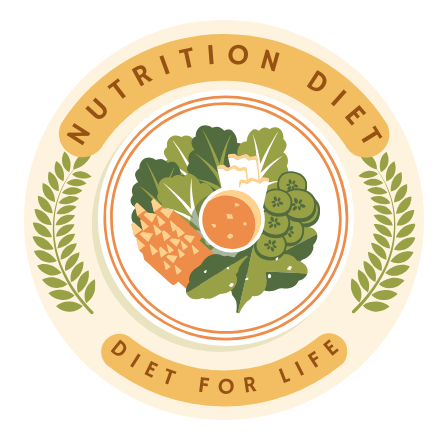Proper nutrition is essential for children’s growth, development, and overall well-being. From infancy through adolescence, children undergo significant physical and cognitive changes that require a variety of nutrients. Providing the right balance of vitamins, minerals, protein, and energy-rich foods is crucial for supporting optimal growth, preventing deficiencies, and reducing the risk of chronic diseases later in life. As children develop, their nutritional needs evolve. In infancy, breast milk or formula provides most of the required nutrients, while solid foods are gradually introduced. Toddlers and preschoolers require nutrient-dense foods to fuel their increasing activity levels and brain development. School-aged children and adolescents need additional nutrients to support rapid growth, muscle development, and cognitive function during periods of high physical and mental activity. Key nutrients such as proteins, healthy fats, vitamins, and minerals are necessary at every stage of development. Protein supports growth and tissue repair, while vitamins and minerals like calcium, vitamin D, and iron contribute to bone health, immune function, and energy production. Healthy fats, especially omega-3 fatty acids, are crucial for brain development. By ensuring children receive adequate and balanced nutrition throughout each stage of growth, we can foster their long-term health, development, and well-being.
The Critical Role of Nutrition in Childhood Development
Nutrition plays a central role in both physical and cognitive development during childhood. The first few years are particularly significant because the brain grows at an astonishing rate, setting the stage for future learning and development. Growth, immune health, emotional well-being, and cognitive function are all directly influenced by the food children consume. A balanced, nutrient-dense diet provides the necessary fuel for energy, healthy development, and protection against illness.
Throughout childhood, growth is not just about gaining height or weight. It involves the development of bones, muscles, tissues, organs, and, most importantly, the brain. The intake of nutrients like protein, fats, vitamins, and minerals provides the necessary building blocks for these processes. Additionally, nutrition influences behavior and learning. Studies have shown that poor nutrition can result in developmental delays, learning difficulties, and mood issues.
Macronutrients: The Body’s Energy Source
Macronutrients — carbohydrates, proteins, and fats — are the main sources of energy and nutrients that children need in large quantities. Each plays a critical role in growth, development, and health.
1. Carbohydrates: The Body’s Primary Fuel
Carbohydrates are the primary energy source for the body, broken down into glucose to fuel essential functions like brain activity, muscle movement, and organ operation. Ensuring adequate carbohydrate intake is crucial for supporting a child’s physical activity, cognitive abilities, and overall growth. Carbs provide the energy needed for daily tasks, learning, and development, making them an essential part of a child’s balanced diet for optimal health.
Children’s bodies require a variety of carbohydrates, with a preference for those that are complex and nutrient-dense. Simple carbohydrates, such as refined sugars and processed foods, should be minimized in the diet because they lack the vitamins, minerals, and fiber needed for growth.
Sources of Carbohydrates:
- Whole grains: Brown rice, quinoa, whole wheat bread, oats
- Fruits: Apples, berries, bananas, oranges
- Vegetables: Sweet potatoes, peas, carrots
- Legumes: Beans, lentils, chickpeas
The Role of Fiber in Carbohydrates
Fiber is a type of carbohydrate that is not digested by the body but plays an essential role in maintaining digestive health. It helps regulate bowel movements, prevent constipation, and contribute to overall gut health. Additionally, fiber can help regulate blood sugar levels, reduce the risk of developing type 2 diabetes, and contribute to satiety, which can help prevent overeating.
Sources of Fiber:
- Fruits and vegetables: Apples, pears, berries, spinach, broccoli
- Whole grains: Brown rice, barley, whole-wheat bread
- Legumes and pulses: Lentils, beans, chickpeas
2. Proteins: The Building Blocks of Growth
Proteins are vital for children’s growth and development, as they are composed of amino acids that the body uses to build and repair tissues, produce enzymes and hormones, and support immune function. Protein is especially important during periods of rapid growth, such as infancy and adolescence, when the body demands more resources for building muscles, tissues, and organs. Adequate protein intake ensures proper growth, boosts immune health, and supports overall physical and cognitive development in growing children.
Protein is also important for the development of muscles, bones, skin, and organs. In addition, protein helps repair tissues and build new ones, particularly after physical activity or injury.
Sources of Protein:
- Animal-based proteins: Lean meats (chicken, turkey, lean beef), fish, eggs, dairy (milk, yogurt, cheese)
- Plant-based proteins: Tofu, tempeh, legumes (beans, lentils), nuts, seeds
Protein Needs by Age
- Infants: In the first few months, breast milk or formula provides all the necessary protein. At six months, solid foods like pureed meats and legumes are introduced.
- Toddlers and Preschoolers: Protein needs increase during these stages, as children become more active and continue to grow.
- School-Aged Children and Adolescents: The demand for protein increases due to growing muscle mass and increased physical activity levels, particularly during puberty.
3. Fats: Essential for Brain Development
Fat is a vital nutrient that supports brain function, cellular growth, and the absorption of fat-soluble vitamins like A, D, E, and K. Healthy fats, especially unsaturated fats, are essential for the development of the nervous system, which plays a key role in cognitive and emotional health. These fats contribute to the structure and function of brain cells, making them crucial for a child’s learning, memory, and emotional well-being during critical periods of growth and development.
Children, especially during early childhood, require higher fat content in their diets than adults. This is because fat provides concentrated energy, which is crucial for the growing body, and because it supports brain development. The brain is made up of approximately 60% fat, and essential fatty acids like omega-3 and omega-6 play a significant role in brain cell structure and function.
Sources of Healthy Fats:
- Avocados
- Nuts and seeds (e.g., walnuts, chia seeds, flaxseeds)
- Fatty fish (e.g., salmon, sardines, mackerel)
- Olive oil and other vegetable oils
- Nut butters (e.g., peanut butter, almond butter)
Omega-3 Fatty Acids
Omega-3 fatty acids are crucial for children’s brain development, contributing to enhanced cognitive function, emotional well-being, and reduced inflammation. Studies indicate that children with higher omega-3 levels tend to have better concentration, memory, and academic performance. These essential fats play a significant role in the development of brain cells, improving focus, learning abilities, and overall cognitive health. Ensuring adequate omega-3 intake can support both mental and emotional growth, setting the foundation for academic success and well-being.
Sources of Omega-3 Fatty Acids:
- Fatty fish (salmon, tuna, sardines)
- Flaxseeds
- Chia seeds
- Walnuts
4. Micronutrients: Vital for Growth and Development
Micronutrients, such as vitamins and minerals, are needed in smaller amounts but are equally crucial for healthy growth. They play vital roles in various physiological processes, including supporting bone health, immune function, and energy production at the cellular level. Additionally, micronutrients are essential for cognitive development, ensuring proper brain function and learning. A deficiency in these nutrients can hinder growth and development, highlighting the importance of a well-rounded diet rich in essential vitamins and minerals for optimal health.
Vitamins: Essential for Various Body Functions
Vitamins are organic compounds that help regulate metabolic processes, support immune function, promote wound healing, and maintain healthy skin and vision. They are classified into two categories: fat-soluble (A, D, E, K) and water-soluble (C and the B vitamins).
- Vitamin A supports vision and immune function and is crucial for cell growth and differentiation.
- Vitamin C is vital for immune health and collagen formation, promoting healthy skin, teeth, and bones.
- Vitamin D helps regulate calcium levels and supports bone health.
- Vitamin E functions as an antioxidant, protecting cells from damage.
- Vitamin K is necessary for blood clotting and bone health.
Minerals: Key to Development and Function
Minerals, including calcium, iron, magnesium, and zinc, are inorganic substances that are essential for building bones, forming enzymes, and maintaining nerve function.
- Calcium is necessary for developing strong bones and teeth.
- Iron supports the production of red blood cells and helps prevent iron-deficiency anemia.
- Zinc is crucial for growth, immune function, and wound healing.
- Magnesium supports muscle and nerve function, and it is also involved in over 300 biochemical reactions in the body.
5. Water: Hydration for Healthy Functioning
Water is a vital component of a child’s diet, playing a key role in nearly every biological function, including digestion, nutrient absorption, temperature regulation, and waste elimination. Given that children are often active and more susceptible to dehydration, it’s essential to ensure they drink enough water throughout the day. Proper hydration supports their overall health, energy levels, and physical performance, helping to maintain balance in the body and prevent dehydration-related issues, which can impact growth and development.
Sources of Hydration:
- Water
- Fruits and vegetables (e.g., watermelon, cucumbers, oranges)
- Milk and fortified beverages
Nutritional Needs at Different Stages of Childhood
Each stage of childhood presents unique nutritional needs. From infancy through adolescence, the body’s requirements change as a child grows and develops. Below, we explore these different stages and how to meet nutritional needs accordingly.
1. Infancy (0-12 Months)
Infancy is a period of rapid growth and development. During this time, breast milk or infant formula provides all the necessary nutrients. Breast milk is particularly beneficial due to its optimal composition of fats, proteins, and vitamins, along with antibodies that support the infant’s developing immune system. Exclusive breastfeeding is recommended for the first six months, after which solid foods can be introduced.
Key Nutrients for Infants:
- Protein: For growth and tissue repair.
- Fat: For brain development and energy.
- Vitamins and Minerals: Such as vitamins A, D, and calcium for immune function and bone development.
- Iron: Needed to prevent anemia and support cognitive development.
2. Toddlerhood (1-3 Years)
As toddlers begin to move around and develop greater independence, their nutritional needs change. At this stage, children require a variety of solid foods to supplement breast milk or formula. A balanced diet that includes whole grains, vegetables, fruits, proteins, and dairy is essential for continued growth and brain development.
Key Nutrients for Toddlers:
- Protein: Supports muscle and tissue growth.
- Calcium and Vitamin D: Crucial for bone health.
- Iron: Important for cognitive development.
- Healthy Fats: Aid in brain development and energy.
3. Preschool Age (3-5 Years)
Preschool children continue to develop fine motor skills, language, and social behaviors. They need nutrient-dense foods to fuel their increased activity levels and cognitive development.
Key Nutrients for Preschoolers:
- B Vitamins: Essential for energy production.
- Fiber: Supports digestive health.
- Calcium and Vitamin D: Continue to play a crucial role in bone health.
4. School-Aged Children (6-12 Years)
As children enter school, their nutritional needs increase. They are more physically active and require more energy. They also face greater challenges in making independent food choices, as school meals and peer influence become a factor in food selection.
Key Nutrients for School-Aged Children:
- Protein: Helps support muscle growth and immune function.
- Iron: Vital for energy levels and cognitive function.
- Calcium and Vitamin D: Necessary for growing bones and teeth.
5. Adolescence (13-18 Years)
Adolescence is a period of significant growth, with puberty triggering physical changes and hormonal shifts. Nutrient needs are at their peak, as adolescents experience rapid increases in height and muscle mass, alongside changes in bone density.
Key Nutrients for Adolescents:
- Protein: Supports muscle and tissue growth.
- Iron: Important for girls to prevent iron-deficiency anemia.
- Zinc and Vitamin D: Support growth and immune function.
Conclusion
Nutrition plays a crucial role in supporting children’s growth, development, and overall health. A well-balanced diet, rich in essential nutrients such as carbohydrates, proteins, fats, vitamins, and minerals, is vital for helping children reach their full potential. During childhood, the body undergoes significant growth and development, and adequate nutrition ensures that every aspect of this process, from physical growth to cognitive function, is supported. Providing the right nutrients at each stage of development not only promotes immediate well-being but also sets the foundation for long-term health. A nutritious diet helps prevent nutritional deficiencies, supports a healthy immune system, and provides the energy needed for daily activities and learning. Furthermore, establishing healthy eating habits early on encourages children to make positive food choices that can last throughout their lives.
Key nutrients like protein support muscle and tissue growth, while vitamins and minerals such as calcium and vitamin D are essential for bone health. Healthy fats contribute to brain development, and fiber aids in digestive health. By ensuring that children receive a variety of nutrient-dense foods, parents and caregivers can help them thrive both physically and mentally. Ultimately, a strong nutritional foundation during childhood not only ensures optimal growth and development but also helps prevent chronic diseases and health issues later in life. Investing in children’s nutrition today lays the groundwork for a lifetime of healthy habits and well-being.
SOURCES
Academy of Nutrition and Dietetics. (2016). Nutrition for kids: Essential nutrients for growth and development. Journal of the Academy of Nutrition and Dietetics, 116(2), 295-300.
American Academy of Pediatrics. (2014). Nutritional needs of children. Pediatrics, 134(4), 1074-1083.
Barton, S. S., & Williams, J. R. (2020). Nutritional guidelines for growing children: A comprehensive overview. Pediatric Nutrition Reviews, 22(3), 215-226.
Gonzalez, R. F., & Bell, L. T. (2019). The impact of vitamin D on children’s bone health. Journal of Pediatric Health, 31(1), 45-52.
Hoffman, A. K., & Brown, J. M. (2022). Vitamin A and immune health in childhood. Journal of Pediatric Nutrition, 20(4), 1189-1196.
Kleinman, R. E., & Greer, F. R. (2018). Pediatric nutrition handbook (7th ed.). American Academy of Pediatrics.
Liu, X., Zhang, L., & Zhou, W. (2017). Iron deficiency and its effects on children’s cognitive and physical development. Nutrition and Health, 23(2), 108-114.
Marshall, S. J., & Hamilton, C. E. (2020). The importance of dietary fats in brain development in children. Clinical Nutrition, 39(7), 2521-2530.
Miller, J. D., & Anderson, C. L. (2021). A review of protein needs during childhood and adolescence. Journal of Pediatric Science, 29(1), 37-45.
National Institutes of Health (NIH). (2021). Nutritional guidelines for children: The role of calcium in bone health. Nutritional Insights, 34(4), 501-510.
Rosen, C. J., & Farrar, D. G. (2019). The role of vitamin K in children’s development. Bone Health Journal, 21(2), 77-85.
Sharma, K., & Thomas, G. L. (2018). Understanding the nutritional requirements of toddlers and preschoolers. Pediatric Nutrition Reviews, 19(5), 211-219.
Smith, E. T., & Walker, H. L. (2020). Micronutrients and child health: A review of essential vitamins and minerals. Pediatric Nutrition Reviews, 22(2), 189-195.
World Health Organization (WHO). (2017). Nutrition for infants and young children: A global perspective. World Health Organization.
Zhao, H., Li, L., & Yang, L. (2021). Essential fats and their impact on children’s cognitive development. Journal of Child Development, 32(3), 132-140.
HISTORY
Current Version
November 16, 2024
Written By:
SUMMIYAH MAHMOOD




